

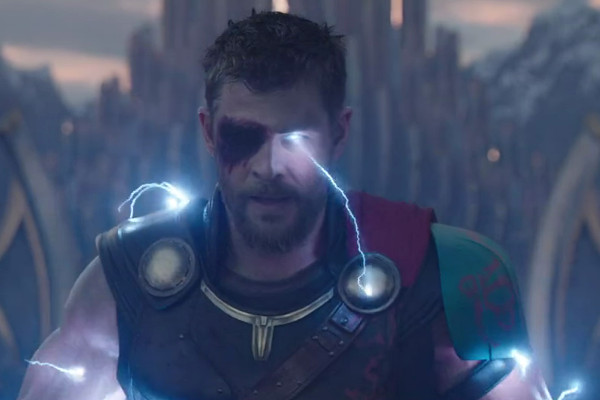
Thor: Ragnarok is a full out comedy, with one of the range's more sombre characters placed through a post-Guardians filter and coming out the other side almost completely unrecognisable from the character we'd seen before, more Kevin Beckman from Ghostbusters than Thor. Although this ranks higher than either of the previous Thor movies, they have to be more respected for their earnest attempt to stick to the core character. It's not that superhero movies can't have jokes, more that the quality of the jokes on display here are so easy and lowest common denominator. There'd be no point in opting for intellectual comedy in a PG-13, but here a variety of mugging, pratt falls, slapstick, dick jokes and "the Devil's Anus" make up the runtime.
Director Taika Waititi claimed that around 80% of the dialogue was improvised, and it shows - but not necessarily in a good way. While actors in other Marvel movies have clearly gone off script (most notably Downey Jr.) here the entire film is punctuated by stifled grins and ad-libs. By turns funny and gratingly indulgent, what makes it all jar a little is that so many momentous events take place within it. That Loki's plans after ruling Asgard only amounted to having Matt Damon play him on stage can be forgiven in a film where everything is "just a laugh"... but far less forgivable is that the death of Odin, the destruction of Asgard and Thor being half blinded are more or less played for "yuks".
Such a curmudgeonly review of a light-hearted, inconsequential film may seem to be taking comic book movies way too seriously, though an example of the level of wit can be gleaned by the fact that arguably the best line in the movie - "he's a friend from work!" - was suggested by a child who had visited the set. This is not to speak ill of the child (who was visiting as part of the Make-A-Wish foundation) but just to point out that the rest of the cast and crew couldn't come up with material as good as that suggested by an infant. This is a film where scatalogical humour is the order of the day, and the old "ass guard" joke actually finds its way into a Marvel movie.
Cate Blanchett does well as Hela, the Goddess of Death, though while the movies must be allowed to plough their own path away from the source material, the truly anal may recall the Lee-Buscema story where the character is killed, but has to be brought back to life in order to restore the universal balance of death itself. Such logistical musings don't seem to matter here, and the film is, if nothing else, bright, pacey and watchable. Such slights are not to suggest that Marvel Comics must be taken as a sacred text, or that the only humour allowed in the films should be high brow, but more to acknowledge that there's more to the world of comedy than Thor talking about having seen the Hulk's penis.
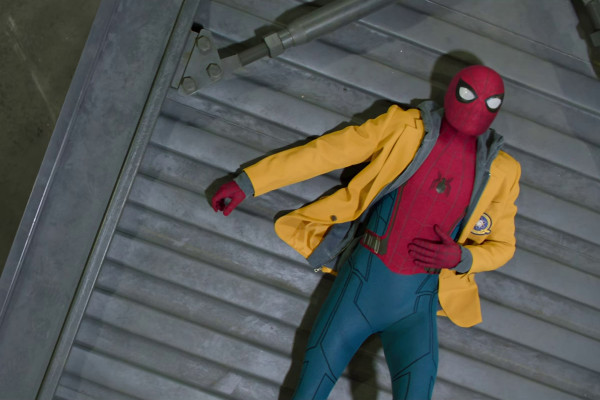
Since his first appearance in Civil War, Tom Holland's solo outing as Spider-Man was much antipicated. As a final film, it's one that fulfills all its promise... yet somehow still manages to disappoint all the same. While Holland is endlessly likeable and his chemistry with Robert Downey Jr. (reportedly the reason why he got the job) is immense, it's once more a unique character pushed in an unnatural direction to fit a "formula" in Marvel's cookie cutter production line.
It perhaps doesn't matter that Peter gives up a lot of his independence in this film to pander to the box office appeal of a guest-starring Iron Man... what's more important is that Peter's academic intellect and neuroses are shaved off to make a crowdpleasing event with little in the way of depth. The superhero genre is a much-maligned one in films, and, while it's perhaps never quite produced its own caped Citizen Kane, there are some worthwhile entries making up its number. For Spider-Man particularly, then, while perhaps not high art, the Sam Raimi movies (even the much-slated third entry) and the underrated Andrew Garfield films had more to them than this effort.
Presenting a Peter Parker without a neurotic side is not the complaint of a comic book purist; it's a fundamental part of the character. Superhero films make necessary changes to appeal to certain demographics. While readers of the Lee-Ditko era may get distracted by all the race-swapped characters and a Vulture who appears much younger and hirstute than on the page (though Michael Keaton's 65 years would be about right, he remains impossibly youthful), such things are mere decorative deviations from the four colour page. There's even a case to be had that the Vulture is improved by getting extra background and motivation.
Peter's characterisation, however, is not just a trivial decorative element... while having the powers of Spider-Man in real life would be tremendous fun, Spider-Man was never about celebrating his own lot, but being ravaged by guilt; the retooling of the character even appears to have omitted Peter being responsible for his Uncle's death, something that underpins the entire character. Here Peter learns that "with great power comes great responsibility" only by being a slapstick klutz and having Tony Stark treat him like he's spent the entire film's duration forgetting the safe word. It's a fun, watchable movie, high up in this list, but at its centre is something really quite hollow.
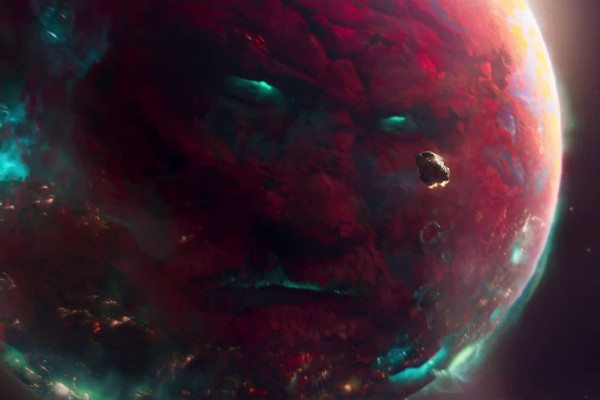
The original Guardians of the Galaxy was a watchable but overrated movie, and consequently this likeable sequel saw over-hyped audiences largely disappointed. It was still popular, but not to the tune of the original, although the box office take was even greater. It perhaps doesn't help that the narrative is so unfocussed, though it pleasingly goes even further into "cosmic", with Watchers, Celestials and Ego the Living Planet (the latter sadly not fully realised as he is in the comics, which would have worked in the Guardians' more comicbookish world.)
With a less focused, more esoteric plotline, it lacks the simplistic appeal of the original, even if baby Groot is undeniably cute. Yet the film is also bloated, an extra 15 minutes on top of the original's already-overlong runtime causing it to drag in spots. Some of the humour - particularly with Drax - tries a little too hard, and the Stan Lee cameo shows that less is definitely more. But it's a more worthwhile picture at heart, even if the pruning of at least half an hour would have made it, if nothing else, more clear in intent. The final dissolution into pure sentimentality might seem an odd move, though it typifies the broad, very Americanised culture at the heart of these films.
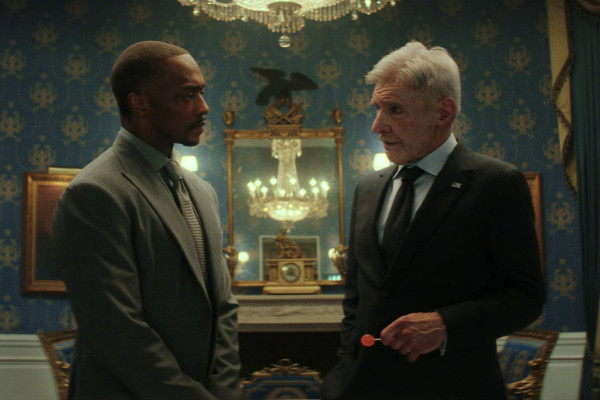
Met with lukewarm reviews and a lukewarm box office (it may have only just about made its production and marketing costs back), Brave New World isn't so bad. Trying a kind of Winter Soldier style espionage tale, it doesn't quite reach those heights, but Anthony Mackie shows the charisma to lead his own film, if Marvel fatigue will allow him to do so.
"Marvel fatigue" does now seem to be very much a real thing. When you've released over thirty movies that aren't widely dissimilar, even the core fanbase is getting restless, and the MCU doesn't have the cultural ubiquity it once had. Rather than being regarded as pop culture events, they now seem to be regarded as a little silly and meaningless, which is a shame, as the truth probably lies somewhere in between. The films were fun, but they were never classic cinema.
Brave New World leans heavily on the sermonising and platitudes, though generally avoids the self-reflexive humour that undermines the reality of the piece (see the next entry for more of that). Earlier in the article I described The Incredible Hulk as "the forgotten film of the Marvel Universe", and it's a little strange that this one should be a sequel to events in that film, considering it was released the best part of 17 years later. (Where has the time gone?) There's also a character you won't have heard of unless you've watched one of the TV shows, but there's enough exposition in the piece to tie it all together.
Perhaps the marketing was at fault here, with the people behind it seemingly not knowing how to sell it. The posters feature the Red Hulk, which is supposed to be a surprise twist 90 minutes in. Meanwhile, the trailer included scenes over 95 minutes in, when the end titles kick in before the 108 minute mark. Maybe it'd be a better film without the Red Hulk inclusion at all, as it does take the conspiracy angle into somewhat less "ground level" areas, but it does have a plot point within the movie.
One last point is that parts can be sloppily put together on occasion: some shot continuity isn't great, and reverse shots often see characters not moving their mouths to the dialogue they're supposed to be saying. But it's a decent effort. While there's the suspicion that Harrison Ford (taking over from the deceased William Hurt as "Thunderbolt" Ross) would have chosen to phone it in, he really makes an effort with the material. Worth a watch.

No matter what the opinion of The Avengers is as a movie, as a product it must be regarded as an unqualified success. Although the first five films had done reasonable business (raking in $2.2 billion dollars from a $780 million budget) none of them were enormous hits, with only the Iron Man films reaching the top ten of their respective years. The Avengers transformed the franchise into a genuine money-making concern, raking in over 1.5 billion dollars... in its wake, the vast majority of the Marvel movies for the next seven years were top ten hits. The box office largely fell away when these characters retired from the movies, but for the best part of a decade it was a pop culture phenomenon.
Even as a viable work Josh Whedon's project is perfectly executed: although the generic alien race aren't a genuine threat, the interactions between several superheroes is ultimately well established when it could so easily have failed. This said, the movie is the first to introduce overt humour into the Marvel Universe, and, while crowd-pleasing, the humour used in most Marvel movies unwittingly patronises the audience in its simplicity: glib, mock-ironic witticisms and instant reverses are the order of the day. And while the film does well to please most members of the family, down to the very young, older viewers may grow weary of all the extended quip-soaked battles taking up the extended 143 minute runtime.
No one ever watched a Marvel movie for a discussion of the works of Nietzsche, but there is an unfortunate shallow feeling at the core of this one, a film cynically targeted purely to make cash; its various plot elements as mercenary contrived as the exploitation of Scarlett Johannsson's sexuality. Yet while built on a bedrock of bombast and platitudes, the film holds up surprisingly well over a decade on.
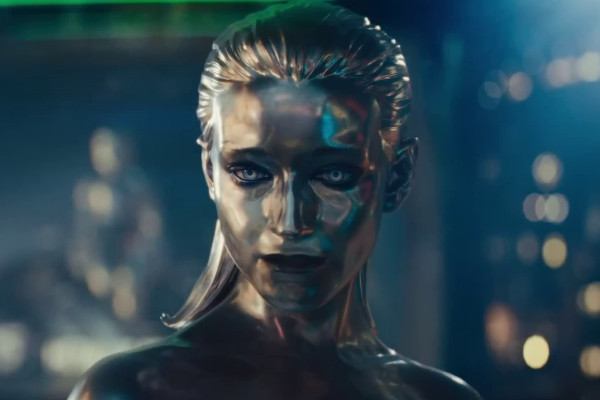
An odd one to rate, this. There's a feeling that it's not a film that'll live up to repeat viewings, as it is heavily exposition-based, with little space to breathe between pieces of information being flung at the viewer. Although the film presents the Fantastic Four as a developed group and ditches the need for another origin story, there's still some necessary explanations for who everyone is. (And although the origin is quickly dealt with as a news report recap, it would have been nice to have at least seen Ben transform.) Though there's the definite reality that a lot was cut out, with John Malkovich's trailer-present Red Ghost absent from the movie, and presumably a lot more.
At less than two hours there's a lot to cram in, and some things get kind of left by the wayside, such as The Thing's relationship with Nichols from Orange is the New Black, which doesn't really go anywhere in particular. Yes, it's world-building, but as we already know that the FF will leave this reality and join the regular Marvel universe, these are just people that will be left behind. Maybe this "world" would feel more tangible if it didn't just involve about ten non-acting extras.
The Anorak Zone has a soft spot for the Fantastic Four, having watched the '60s cartoon as a child, and so all of the previous attempts to bring the group to the screen have been regarded with a kind eye here. (Yes, even the Roger Corman production from the '90s and that 2015 one with Miles Teller.) This said, it's nice to finally have a FF movie that is, if not great, or maybe not even good, does at least give us something decent. Of particular note is that some of the FF's powers can look goofy when rendered onscreen, Reed's particularly, but they're treated with appropriate seriousness here, not sent up like they were in the Tim Story movies. Though we could have done without the Thing growing a beard.
Talking of seriousness, there's a refreshing lack of self-reflexive jokes, and while we didn't need to hear Reed say "bullshit", the swearing of much of the MCU is toned down. There were complaints that they went with a female Silver Surfer, and I get it - it was a chance to finally see the Lee-Kirby story depicted onscreen, and they went with something different. But Julia Garner does a fine job, and you soon forget about it.
There's a real attempt to capture the Lee-Kirby dynamic, and generally it comes off, even if Stan and Jack never had a scene where Sue gives birth in front of the rest of the group. ("Next ish, true believers, we've got a real treat in store - it's Sue's uterus! And we did it all for you! Excelsior!") But there's darker moments where Galactus wants the son of Reed and Sue, and they debate the moral implications of it all.
Despite the best efforts of all, the Galactus plot perhaps never really comes off fully, perhaps because it's all a little too much, too quickly. Maybe it's because a end credits scene of Thunderbolts* showed that - spoiler - the FF entered the regular MCU reality, so you spend a lot of the film wondering how it's going to tie up. (Spoiler... it doesn't. Whatever causes the FF to leave their own universe doesn't happen in this film.) But as with a lot of the MCU, there is a sense that you're watching parts of a longer story rather than something that really revels in itself. Maybe it's just that it could have done with another half an hour or so, but this is a decent watch.